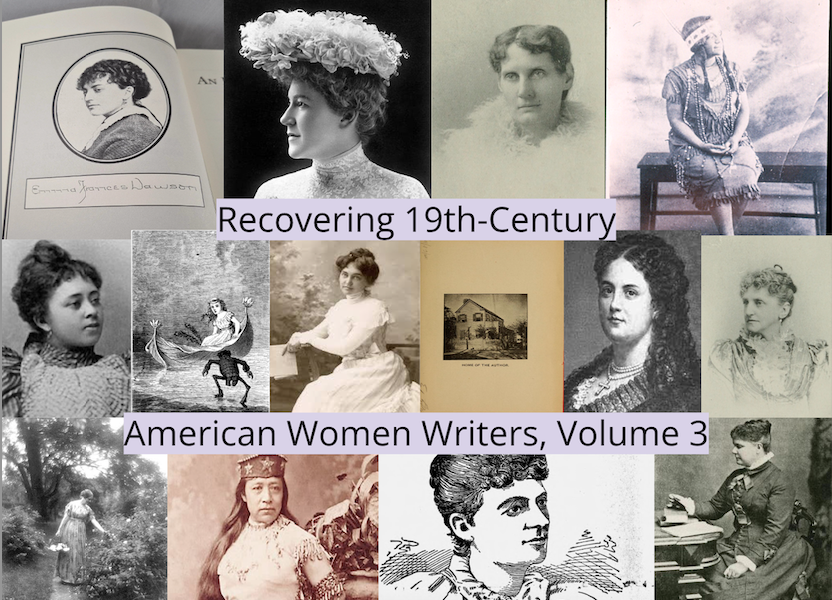Physician. Suffragist. Inventor.
Addiction Medicine Pioneer.

“Every effort which science can suggest should be put forth for [a substance user’s] recovery… he should be shielded… by a system of control the least degrading, the most humane… which human ingenuity can devise.”
Dr. Brown, “Prison Experiences”
Biography
Dr. Lucy M Hall-Brown (1843-1907) was a professor, physician, and medical researcher in the field of addiction medicine. Born in New England, she graduated from Dearborn Seminary where she worked as a teacher for several years. After the untimely deaths of her mother and father, she was persuaded by the family physician to pursue work in the medical field. She graduated from the University of Michigan, Ann Arbor, and worked at St Thomas Hospital in London, England, where she was the first female physician to ever participate in their clinical program. Upon her return to America, she was appointed by Gov. Talbot of Massachusetts as the physician to the State Reformatory for Women in Sherborn. It was here that she took an interest in addiction, specifically the treatment of female alcoholics, who have historically disadvantaged access to rehabilitation treatment. Her work in this field attracted the attention of Clara Barton, famed nurse and founder of the Red Cross:
If any trace of mental trouble manifested itself, the case was closely watched and tenderly cared for… So long as that prison remains a success, so long will the influence of Dr. Hall’s early administration and example for good be felt there.
Clara Barton, A Woman of the Century
Recovered Works
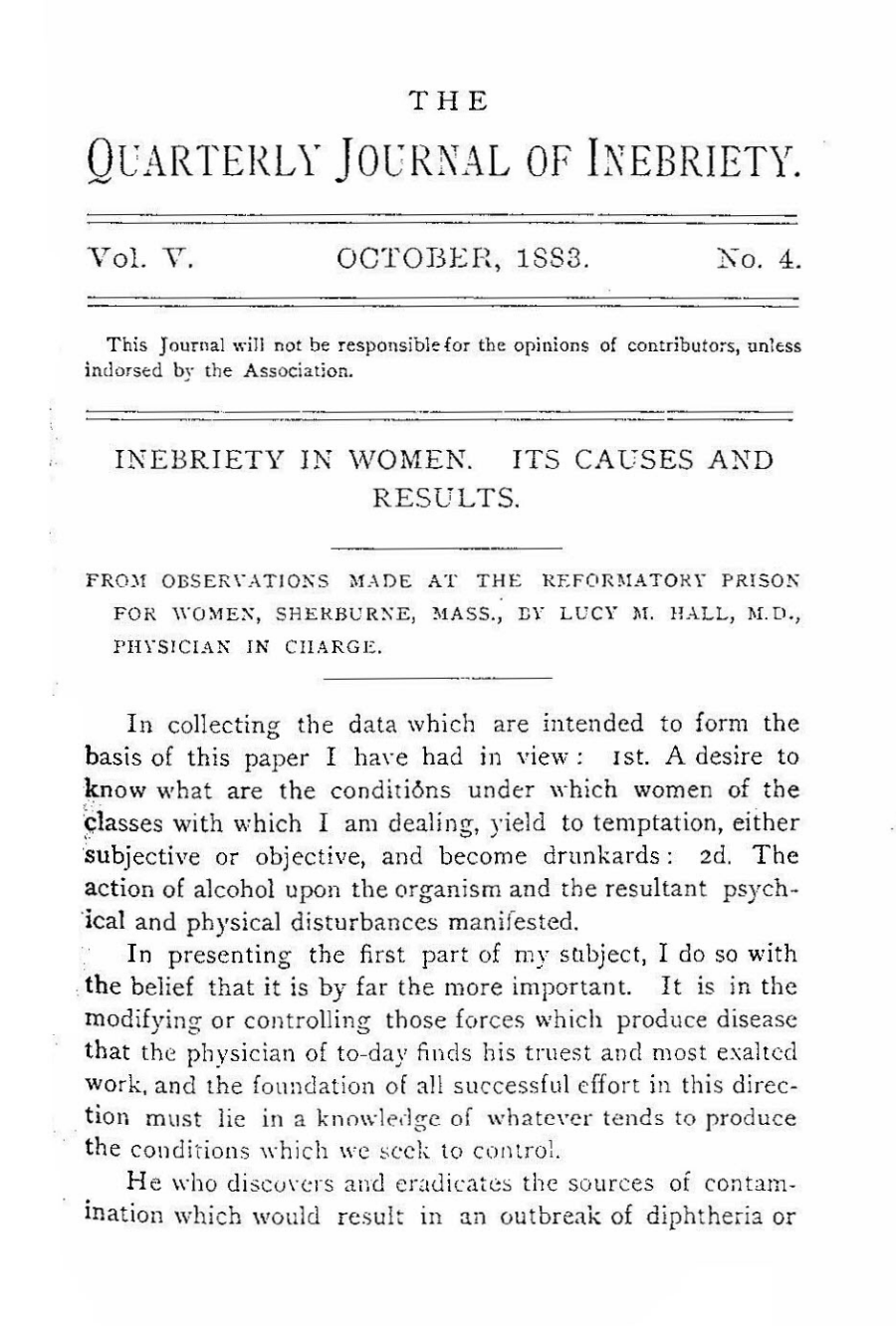
“Inebriety in Women”
The Quarterly Journal of Inebriety, vol. V, no. 4, 1883, p. 213-24.
This research article summarizes Dr. Hall’s observation of women interred in an asylum for reasons related to alcohol use disorder. Dr. Hall includes statistical demographic information on these women and proposes a new method of classifying severity in cases of alcoholism.
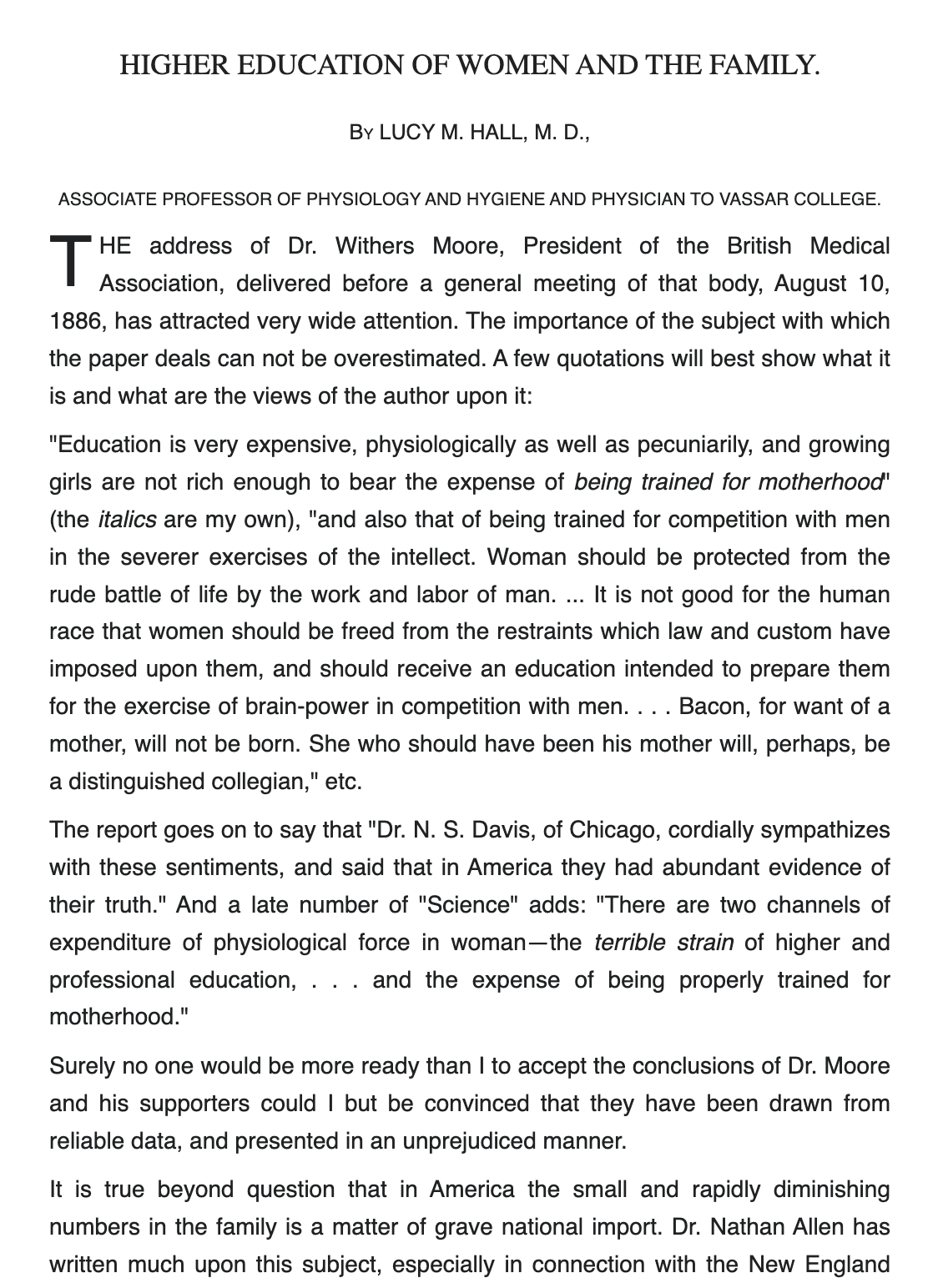
“Higher Education of Women and the Family”
Popular Science Monthly, vol. 30, 1887.
Dr. Hall was well-known for her contributions to scientific newsletters and periodicals on topics ranging from her original research to women’s suffrage. In this popular science opinion article, she challenges the assumption that higher education can damage a woman’s health, social standing, or her ability to be a wife or mother.

“Prison Experiences”
The Medical Jurisprudence of Inebriety, The Medico-Legal Journal Association, 1888.
This is a work of academic opinion in which Dr. Hall addresses academia’s dedication to the study of addiction medicine and attempts to encourage support for her research. This piece was read aloud before a group of Dr. Hall’s peers before the Medico Legal Society.
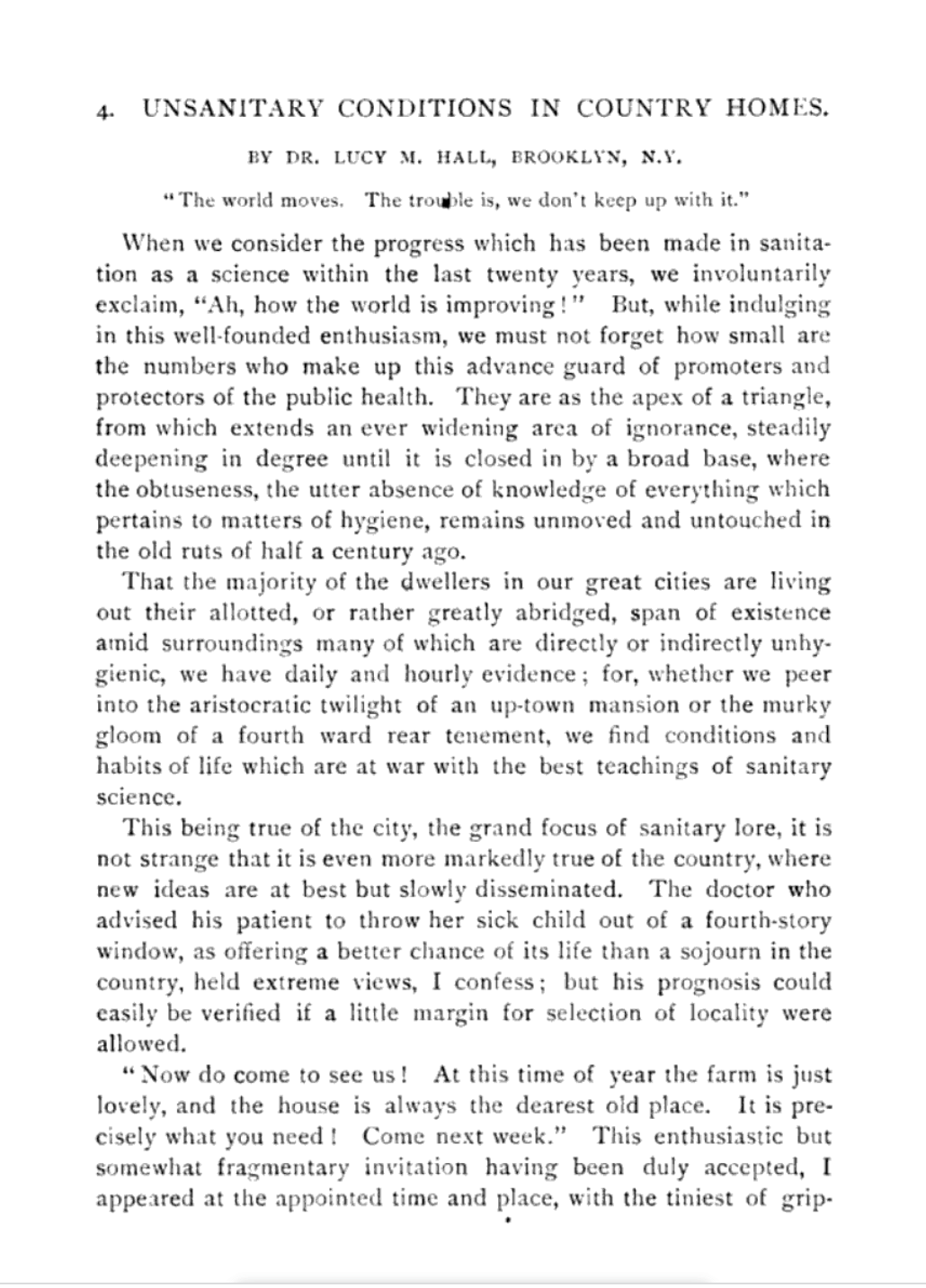
“Unsanitary Conditions in Country Homes”
Dr. Hall reports on her experiences in the often under-studied and unseen world of rural America. She includes detailed statistical data describing the living conditions and rate of disease.
Discussion
Reviewing the works of Dr. Lucy M Hall provides unique insight into the marginalized voice of a woman in STEM during the late 19th century. Not only is it important for us to reflect on Hall’s work and appreciate her scientific contributions, but her writings reflect issues of contention that still affect women to this day. Her work in addiction was groundbreaking, but more importantly, her frustration as a female practitioner treating women whose problems are often-overlooked for the highly stigmatized condition of addiction is palpable in her writings.
Further Research + Recovery Opportunities
While there is not much information available detailing Barton and Hall’s relationship aside from their professional connections, it is evident from these letters that they had a close personal relationship as well. As a rarely documented example of a close friendship between suffragist women in early scientific professions, there is great potential for these documents to be explored, analyzed, and brought into academic conversation.
“Your dear, lovely,
dancing letter came two
days ago. I hardly dared
read it-I was so afraid
it would all end in
disappointment. I just shut
my teeth and winked
hard and then went and
ground away at my
Saratoga paper. But-I
read the dear letter over
today and twinkled all over
with pleasure. I just can’t
realize that we are going
off together on such a
glorious spree…
Your poor little girl can hardly decide whether
she is bursting with delight
or admiration or gratitude but
my! o! my! She’s bursting!!
She must just stop thinking
or she’ll go to pieces sure.”
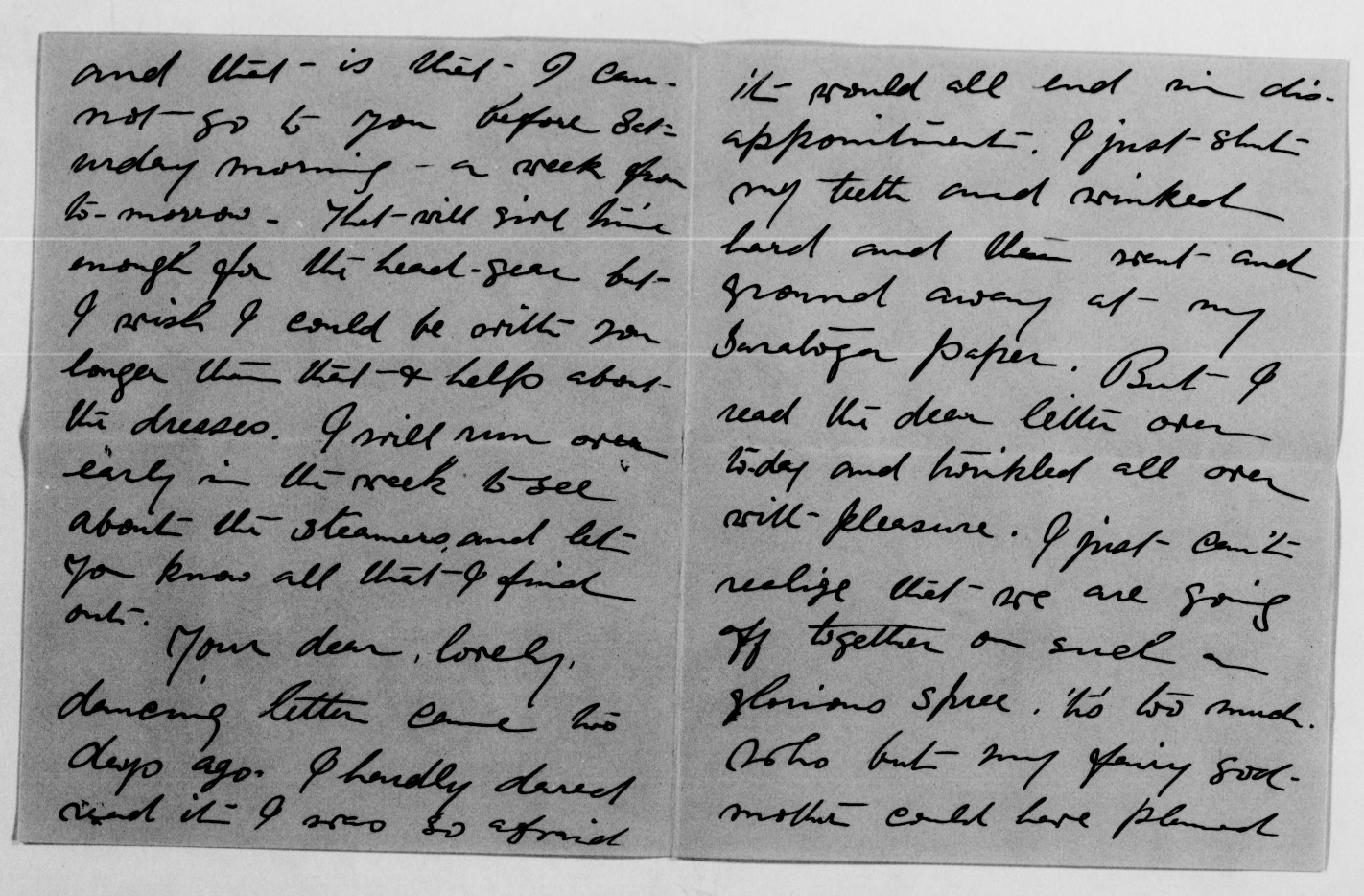
“My very precious “Ma”
Your letter
brought a whole bushel of
happiness in just the
very possibility which it
held out of your coming
to Vassar. Never mind
the clothes or the “feathers”
or anything else but the
coming. You will come
I am sure of it!!
With a world of love
Your “Little Girl””
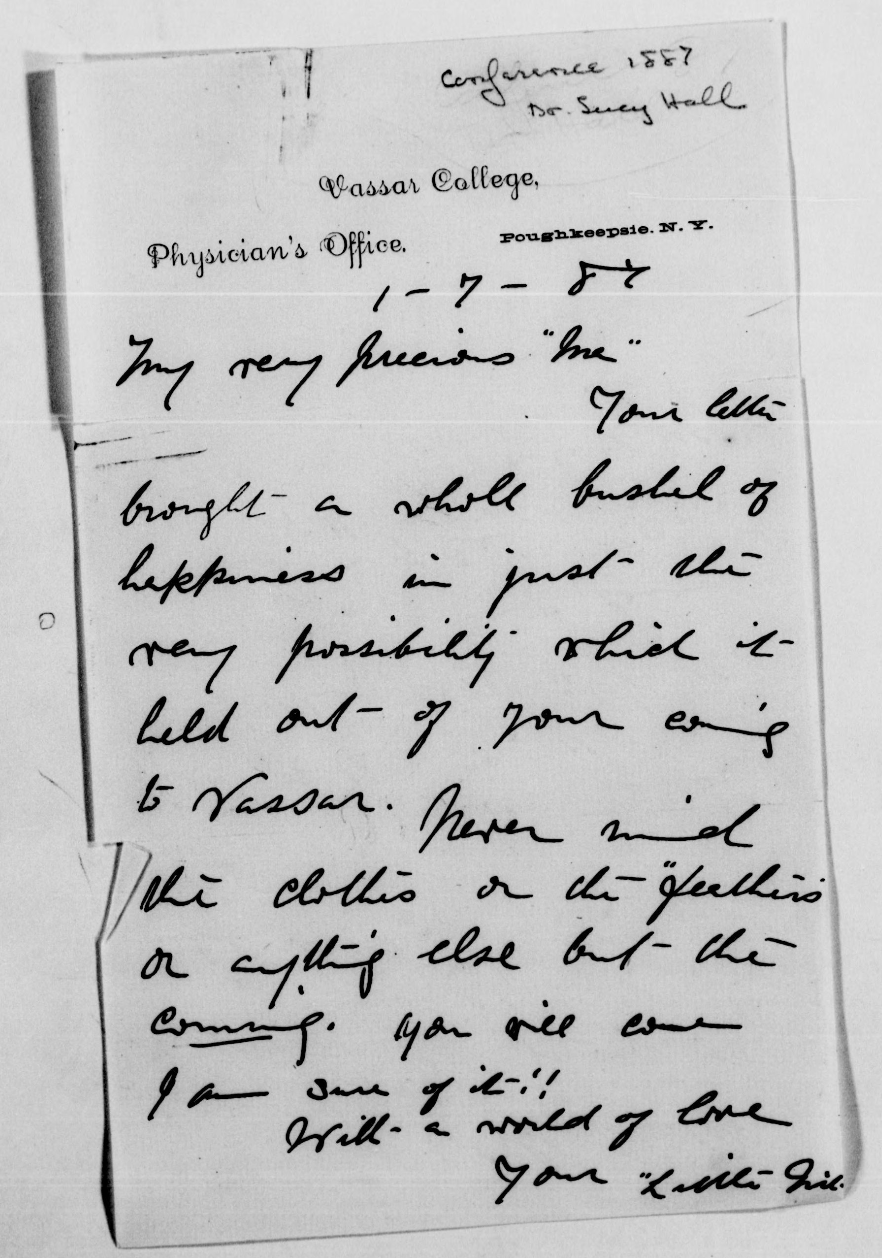
“Penetrated below my poor skull
that you will perhaps sail from
New York and so I shall see
you after all. You will come
to see me I know. Stay here
and get rested and then my
eyes will watch you as you
draw away from the shore and
my poor tear stained handkerchief
will be the last thing which will
dwindle from your sight as you leave
behind you the land and the people who so
love you and honor you. I know
what a mite I am in the number but my
love is great and strong
Ever thy “Little Girl””
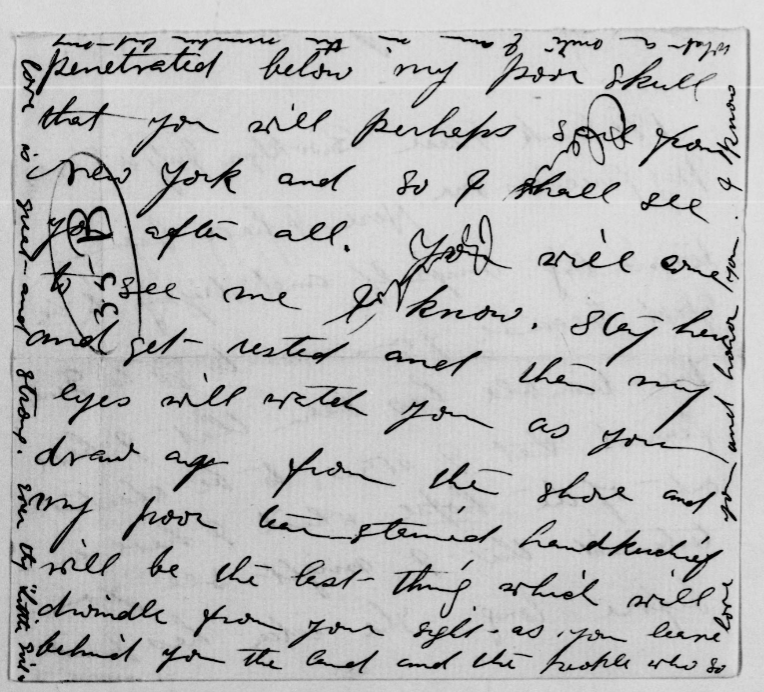
Citations
American Statistical Association. “Reviewed Works: Unsanitary Conditions in Country Homes by Lucy M. Hall; Report Upon a Sanitary Inspection of Certain Tenement-House Districts of Boston by Dwight Porter.” Publications of the American Statistical Association, vol. 1, no. 4, 1888, pp. 172-4. JSTOR, https://www.jstor.org/stable/2276021?seq=1#metadata_info_tab_contents.
Blackwell, H. B., and Alice Blackwell, editors. The Woman’s Journal [Boston], 16 ed., no. 21, 25 May 1895, https://iiif.lib.harvard.edu/manifests/view/drs:49673170$167i.
Hall, Lucy M. “Higher Education of Women and the Family.” Popular Science Monthly, vol. 30, 1887, pp. 612-8. Wikisource, https://en.wikisource.org/wiki/Popular_Science_Monthly/Volume_30/March_1887/Higher_Education_of_Women_and_the_Family.
Hall, Lucy M. “Inebriety in Women.” The Quarterly Journal of Inebriety, vol. V, no. 4, 1883, pp. 213-24. Chestnut, https://www.chestnut.org/resources/55023bc9-3c2d-4049-93c4-ce2e9f793337/QJI_1883_V5-percent-5B4-percent-5D_OCT.pdf.
Hall, Lucy M. “Prison Experiences.” The Medical Jurisprudence of Inebriety, The Medico-Legal Journal Association, 1888, pp. 67-72. HathiTrust, https://babel.hathitrust.org/cgi/pt?id=coo1.ark:/13960/t57d3fc5b&view=1up&seq=10&q1=prison.
Hall, Lucy M. “Unsanitary Conditions in Country Home.” Journal of Social Science, vol. 1, no. 25, 1888, pp. 59-74, https://www.google.com/books/edition/Journal_of_Social_Science/Y0c3IpE7RDsC?hl=en&gbpv=0.
“Hall-Brown.” A Cyclopedia of American Medical Biography, edited by Kelly A. Howard, vol. 1, W. B. Saunders Company, 1912, p. 502. Wikisource, https://en.m.wikisource.org/wiki/Page:A_cyclopedia_of_American_medical_biography_vol._1.djvu/502.
“Lucy M. Hall.” A Woman of the Century, edited by Frances E. Willard and Mary A. Livermore, Charles Wells Moulton, pp. 349-50. Wikisource, https://en.wikisource.org/wiki/Woman_of_the_Century/Lucy_M._Hall.
Withington, Alfreda B. “Hall-Brown, Lucy.” American Medical Biographies, The Norman, Remington Company, 1920. Wikisource, https://en.wikisource.org/wiki/American_Medical_Biographies/Hall-Brown,_Lucy.
